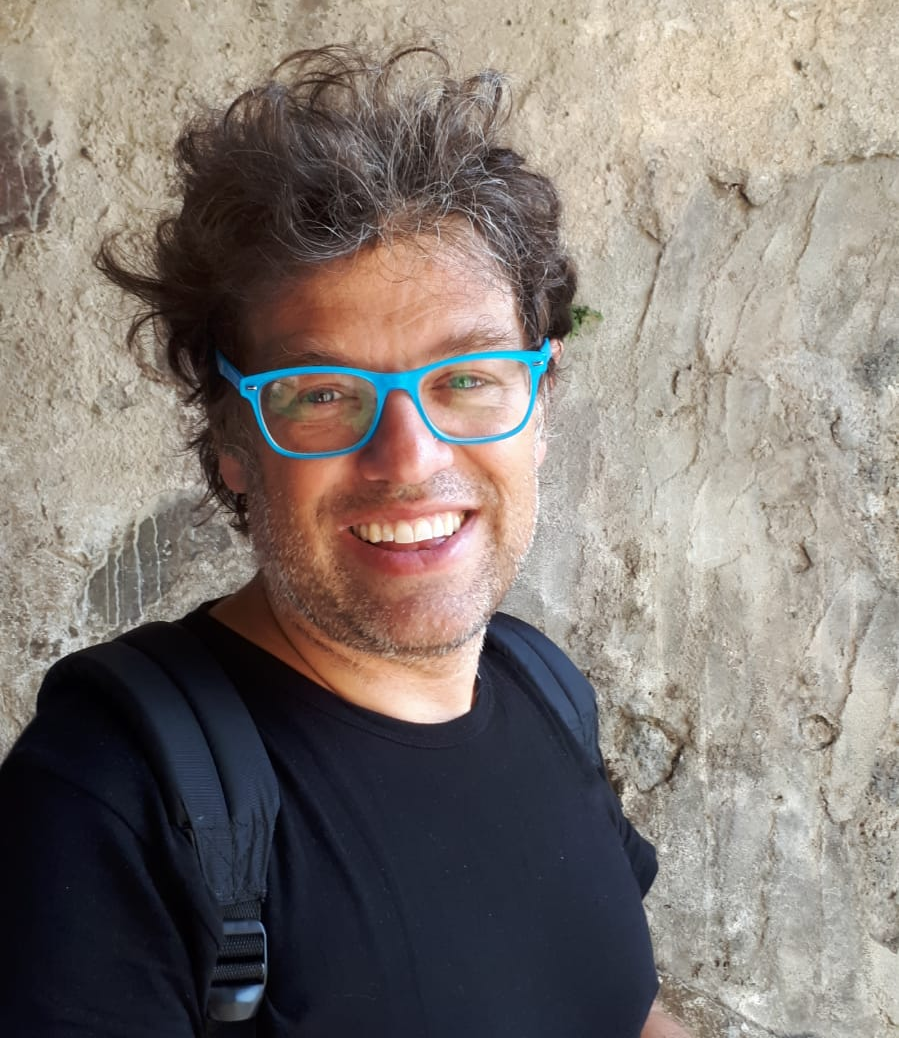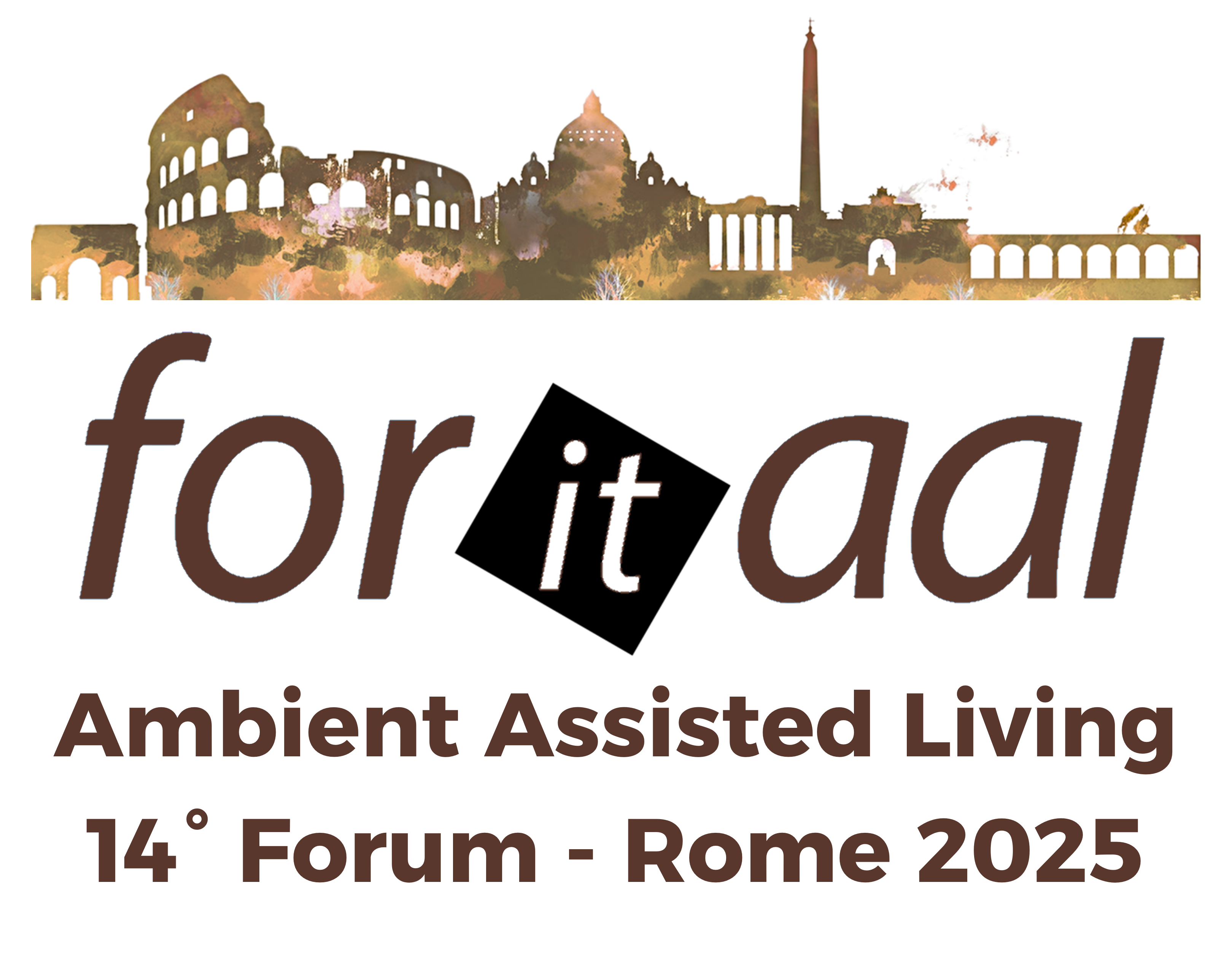Wednesday, Oct 15 — 09:00 – 10:00

Antonio Sgorbissa: “One Robot Fits All: Designing a Simple, Robust Smart Assistant for Multiple Ambient Assisted Living Scenarios”
Università di Genova (IT)
Chair: Gabriella Cortellessa
Abstract
For decades, researchers around the world have invested public and private resources to develop autonomous and intelligent robots capable of assisting and keeping company with vulnerable people. However, much of the scientific community seems more attracted to complex research questions and to building “ad hoc” prototypes designed to explore such questions—destined to have an impact only in the distant future—rather than to the challenge of designing “more realistic” robots, able to perform simple tasks while making a concrete difference in society. Antonio Sgorbissa will share his experience in developing and deploying “simple but robust” social robots, as well as past and ongoing efforts to test them in real-world trials with people (e.g., to prevent delirium in hospitalized older adults or to improve the mood of individuals with spinal cord injuries). The ultimate objective is to create sustainable social robots capable of providing immediate and useful support—without requiring constant supervision by a robotic engineer ready to intervene at the first malfunction.

Antonio Sgorbissa is a Full Professor at the Università degli Studi di Genova, where he teaches Social Robotics, Ambient Intelligence and Operating Systems in EMARO+, the European Master in Advanced Robotics. His research interests include Autonomous Robotic Behaviour, with a focus on Social Robotics and Autonomous Robots for inspection and search & rescue. He has coordinated the EU project CARESSES and has been Principal Investigator in several EU and national projects. He is the coordinator of the national PhD program in Robotics and Intelligent Machines and Director of the RICE Lab (Robots and Intelligent systems for Citizens and the Environment).
Thursday, Oct 16 — 09:00 – 10:00

Loredana Zollo: “Advancing Seamless Human–Machine Integration in Rehabilitation and Assistive Robotics”
Università Campus Bio-Medico di Roma (IT)
Chair: AndreA Orlandini
Abstract
Recent advancements in assistive and rehabilitation robotics have underscored the growing potential of intelligent technologies to establish seamless human–machine integration in Rehabilitation and Assistive Robotics, primarily through closed-loop human–robot interfaces. These developments are increasingly converging with Ambient Assisted Living (AAL) technologies, fostering integrated solutions that extend beyond clinical settings and into daily living environments.
This presentation explores the emerging synergy between users and robotic systems, emphasizing how such seamless integration supports motor recovery and functional substitution for individuals with motor impairments or limb loss. Building upon a critical overview of the current state of the art, we will examine recent progress in multimodal human–machine interfaces and sensory feedback mechanisms—particularly haptic and proprioceptive modalities—implemented within both wearable and environment-integrated robotic platforms.
Finally, the discussion will address key challenges and future directions at the intersection of rehabilitation robotics and AAL, including long-term adaptability, user-centered customization, and the integration of bioengineering, AI, and environmental intelligence to enable more autonomous, personalized, and context-aware assistive solutions.

Loredana Zollo received MS in electronic engineering in 2000 from Università degli Studi di Napoli “Federico II”, and the PhD in Bioengineering in 2004 from Scuola Superiore Sant’Anna di Pisa.
She is Full Professor of Bioengineering, Dean of Engineering and Director of the PhD Program in Bioengineering, Applied Sciences and Intelligent Systems at Università Campus Bio-Medico di Roma.
In the same university she is the director of the CREO Lab – Laboratory of Advanced Robotics and Human-Centred Technologies.
She currently is President of the National Institute for Robotics and Intelligent Machines (I-RIM), a non-profit association established with the mission to promote the development and application of robotic technologies and intelligent systems, with the overarching aim of enhancing societal well-being, improving quality of life, and supporting the sustainability of production systems.
Loredana Zollo’s research interests are mainly in the fields of biomedical robotics, biorobotics and bionics, human-machine interfaces, collaborative robotics, robotics for agritech.
She has been involved in 40+ EU-funded and national projects in her application fields.
She has authored/co-authored 250+ scientific publications and 7 patents.
